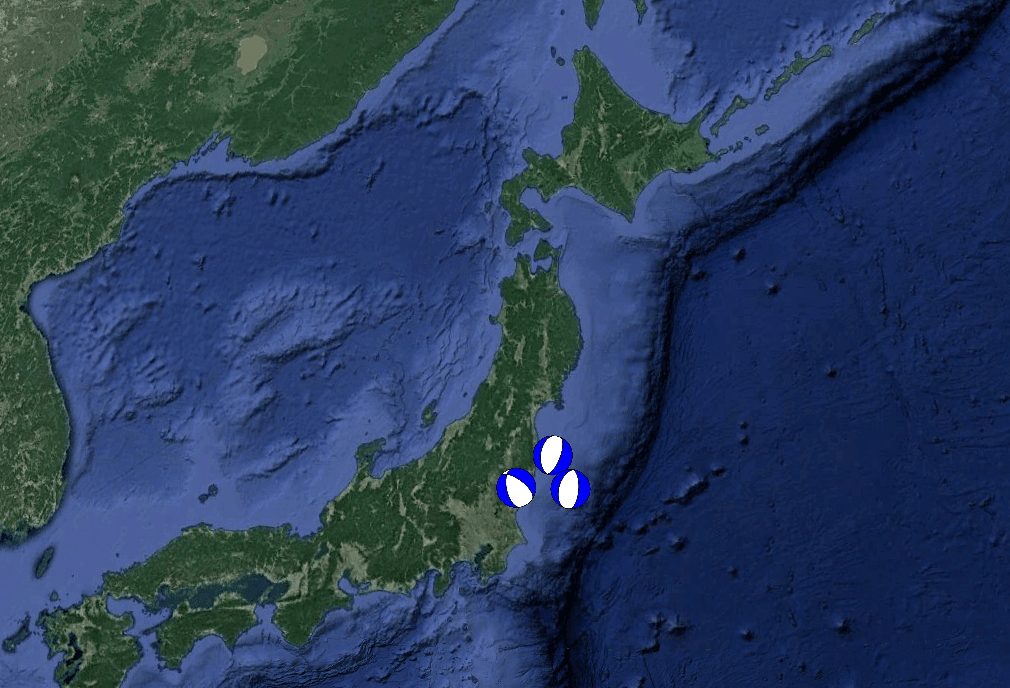在Google Earth上绘制震源球
文章目录
Google Earth可以方便地放大缩小区域范围。将震源球画在Google Earth上可以方便地 查看不同地区地震的震源机制。本文介绍如何把震源球显示在Google Earth上。
原理其实很简单,
- 利用 obspy.imaging.beachball 绘制震源球并保存为PNG格式的图片
- 利用 simplekml 生成KML文件,其中包含 一堆点,每个点对应一个地震,点的图标设置为地震对应的震源球图片即可
本文示例所使用的震源机制文件 catalog.dat 的格式为:
# origin latitude longitude depth mag strike dip rake
20161223172502 36.7282 141.8532 39.67 4.9 4 53 -97
20161228123849 36.7202 140.5742 10.84 5.9 307 52 -118
20161230200827 37.3550 141.4098 27.35 5.1 21 56 -82
以下为 Python 脚本,在 Python 3.6、ObsPy 1.1.0 和 simplekml 1.3.0 下测试通过。
#!/usr/bin/env python
# -*- coding: utf-8 -*-
import os
import matplotlib.pyplot as plt
import simplekml
from obspy.imaging.beachball import beachball
beachball_dir = "beachballs"
if not os.path.exists(beachball_dir):
os.mkdir(beachball_dir)
kml = simplekml.Kml()
with open("catalog.dat") as f:
for line in f:
# skip comment lines
if line.startswith('#'):
continue
items = line.split()
event_id = items[0]
latitude, longitude, depth, magnitude, strike, dip, rake = map(
float, items[1:])
# plot beachballs and save as PNG file
outfile = "{}/{}.png".format(beachball_dir, event_id)
beachball([strike, dip, rake], outfile=outfile)
# must close to avoid opening too many figures one time
plt.close()
# add points to KML file
point = kml.newpoint(name=None)
point.coords = [(longitude, latitude)]
point.description = event_id
# style.iconstyle.scale controls the size of beachball
point.style.iconstyle.scale = 1.5
point.style.iconstyle.icon.href = outfile
kml.save("beachballs.kml")
执行脚本会生成KML文件 beachballs.kml ,用Google Earth打开KML文件,效果如下图
所示。

文章作者 SeisMan
上次更新 2018-03-03